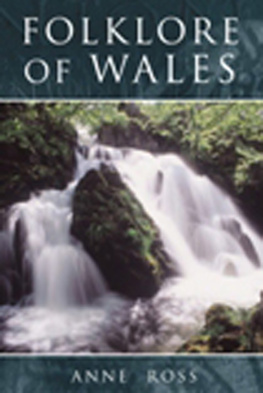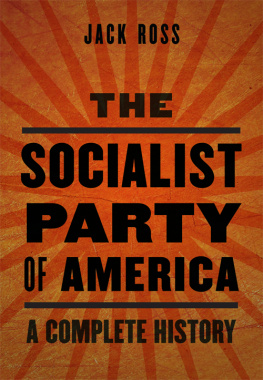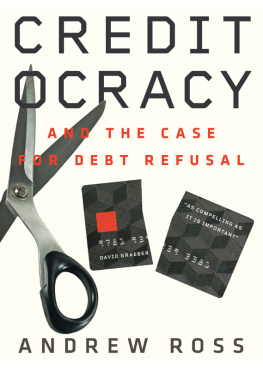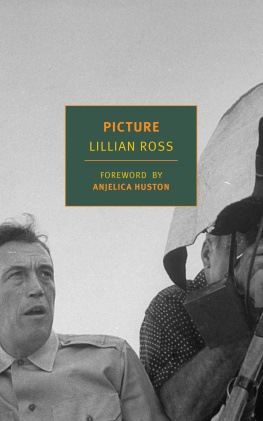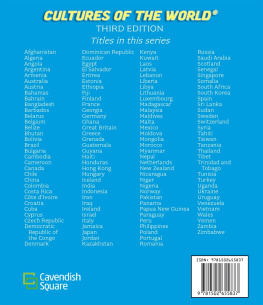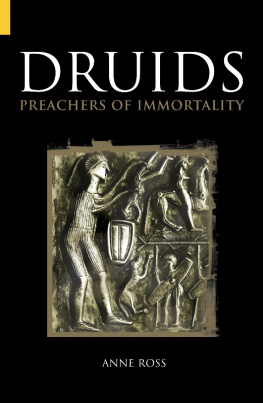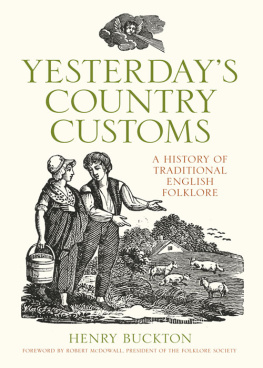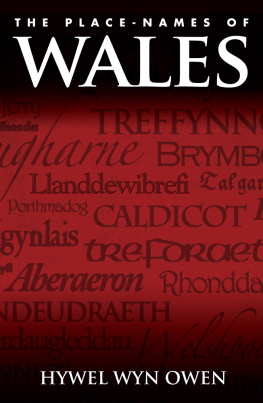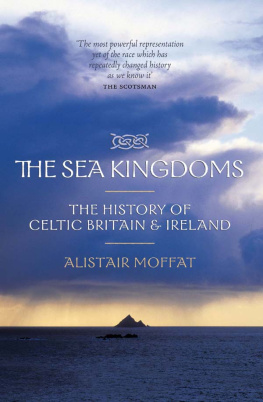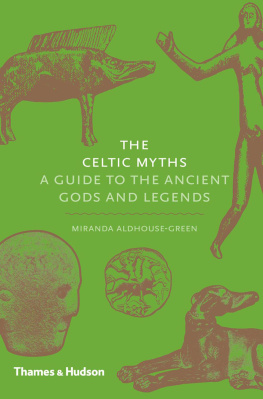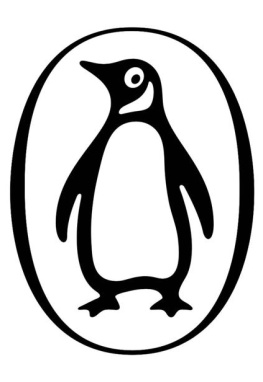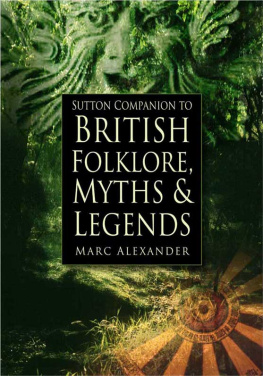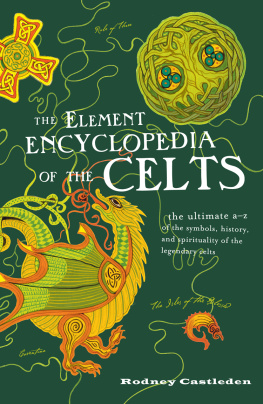FOLKLORE
OF WALES
For my son, Richard Charles Alexander Feachem
FOLKLORE
OF WALES
ANNE ROSS

First published in 2001 by Tempus Publishing
Reprinted in 2011 by
The History Press
The Mill, Brimscombe Port
Stroud, Gloucestershire, GL5 2QG
www.thehistorypress.co.uk
Reprinted 2012
This ebook edition first published in 2013
All rights reserved
Copyright Anne Ross, 2011, 2013
The right of Anne Ross to be identified as the Author of this work has been asserted in accordance with the Copyright, Designs and Patents Act 1988.
This ebook is copyright material and must not be copied, reproduced, transferred, distributed, leased, licensed or publicly performed or used in any way except as specifically permitted in writing by the publishers, as allowed under the terms and conditions under which it was purchased or as strictly permitted by applicable copyright law. Any unauthorised distribution or use of this text may be a direct infringement of the authors and publishers rights, and those responsible may be liable in law accordingly.
EPUB ISBN 978 0 7509 5246 0
Original typesetting by The History Press
Contents
List of illustrations
Waterfall, Ceunant bach, Llanberis, Gwynedd
Map. The background to Wales
Arthurian names
Silver harp, Caerwys Pennant
Llanidan church, Ynys Mn. Faces to right and left of door
Caseg fedi corn dollies with example from Scotland
The Antrobus Soulers, Cheshire
Mari Lwyd, Maesteg and Llangynwyd
Callenig, orange dolly new year gift
Welsh poppy
Linsdorf monster, Haut-Rhin, France
Bronze head of bear, St-Di, France
Bear and goddess, Berne, Switzerland
Beaucroissant bear cult altar
Cath palug
Coetan Arthur, Pembrokeshire
Welsh dragon, Partrishow, Powys
Seagull Dafydd ap Gwilym
Bardsey Island, Pennant
Map of Bardsey Island, with location diagram
Stone head, Llanbrynmair, Powys
Stone head, Llandysul, Ceredigion
Stone head, Hendy, Ynys Mn
Stone head, Meck-ehrovice, Bohemia
Stone head, Brynsiencin, Ynys Mn
Llanddyfan church, Ynys Mn, stone face from front and side
Llanbedrgoch church, Ynys Mn, faces to right and left of door
Stone head, CANOVIVM, Caerhun, Gwynedd
Stone head, Ruthin, Clwyd
Stone heads, Bron y Garth, Shropshire
Stone heads, Holt, Clwyd and MARIDVNVM, Carmarthen
Stone head, VENTA SILVRVM, Caerwent, Gwent
Higgons Well, Haverfordwest, Pembrokeshire
Welsh love spoon by Huw Hughes
Stone heads, Llandegla,Clwyd
St Teilos skull, Llandilo-isaf, Pembrokeshire
Cross shaft, Llanbadarn Fawr, Ceredigion
Devils bridge, Ceredigion
Churchyard wall, Ysbyty Cynfyn, Ceredigion
St Gofans Chapel, Pembrokeshire
Map, Myddfai and Llyn-y-fan fch
Holy Grail cup, Nanteos, Ceredigion
Eagle, Kite
Hare
Pennant Melangell church, Powys
Offas Dyke
Coins of Offa
Acknowledgements
It is impossible to acknowledge all those who have encouraged me in one way or another in my research into the culture, past and present, of the lovely land of Wales. I must include the many Welsh people who have shared their own inherited folk traditions with me and especially the people of this region of mid-Wales where a great deal of folklore still survives and much of which still awaits collection. This I hope to do while memories of the past still remain amongst the older people and some of those of younger years. All my good neighbours must be thanked, and many Welsh friends from different areas of Wales. Perhaps the most generous of these is John E. Williams of Llanrug, himself a writer and a storehouse of old Welsh traditions, John P. Williams, Brother Gildas of Caldey Island, and countless others. My greatest inspiration comes from the wonderful works of my long-standing friend, Rachel Bromwich, whose magnificent study, Trioedd Ynys Prydein (The Triads of the Island of Britain) a new edition of which is on the verge of publication and whose generous sharing of her knowledge and loyal friendship to all has deeply enriched our understanding and enjoyment of some of the oldest literary traditions of Wales.
Each member of my family has contributed to the creation of this work. My husband Richard has added an extra dimension to the book with his fine maps and drawings, Berenice with her tireless expertise on the computer and in many other ways, and Charles by his own computer skill and ungrudging help in every aspect of our daily lives. To them all I extend my heartfelt gratitude.
Finally I would like to thank all the staff of Tempus, and Peter Kemmis Betty whose unfailing good humour and patience ease the inevitable stress of writing to a deadline and make the creation of books for Tempus a pleasure and an exciting venture.
Introduction
Wales is a Celtic country. Many of its people still speak, read and teach the language which has evolved from a branch of ancient Celtic known as Brythonic or P-Celtic, spoken widely on the continent of Europe long before Julius Caesar made his superbly-organised and ruthlessly aggressive conquest of the Gauls (Galli) in a series of hard-fought battles, terminating with the defeat in 52 BC of Gauls greatest hero the Arvernian Vercingetorix (Great King of Heroes), who raised the revolt against Caesar. This famous Gaulish warrior was forced to surrender to the Romans and was subsequently executed in 46 BC.
It is instructive to cast ones mind back to this period of European history and the tribal organisation of the Celts in Europe because I believe that at this early period the seeds of the later post-Roman, Celtic world were sown; and many of its singular and unique characteristics originated even before the defeat of Celtic Europe. Much of what we learn of our continental forebears would seem to provide us with a plausible explanation of certain predilections which evolved into enduring motifs in the development of the rich oral literature of the British Isles. It is a strong possibility that Caesars initial invasion of southern Britain in 55 and 54 BC and the presence of a great number of soldiers recruited from the defeated Gaulish protagonists augmented by fighting men from various other outposts of the empire began the process of moulding the indigenous Celtic traditions and reshaping them into new and perhaps more sophisticated forms.
By AD 70 Wales had become a vibrant part of the Roman Empire () and thus the rich early literary traditions of Britain contain many references to the new influences which inevitably appeared. As in all the Celtic countries, genealogy was of first importance and in Wales it was not unusual, as the people became habituated to the new order, to find Roman names being included in genealogical compilations as the initial hostility gave way to acceptance. The Celtic inhabitants of the Island of Britain might have been expected to feel continuing hostility and resentment towards their Roman conquerors whose basic attitudes and very thought processes were so alien to their own and destructive of the native way of life. However, many benefits were to accrue. The Classical writers, while understandably proud of their military prowess, did make some important comments both in Gaul and Britain, on the nature, appearance and customs of the insular Celts, and showed a considerable interest in Celtic beliefs and religious practices which deeply intrigued them. Indeed, some of these comments can actually help us the present-day Celts to understand who we are, from what we are sprung, and to provide us with fresh clues to some of the singular features of our native culture.
Next page
